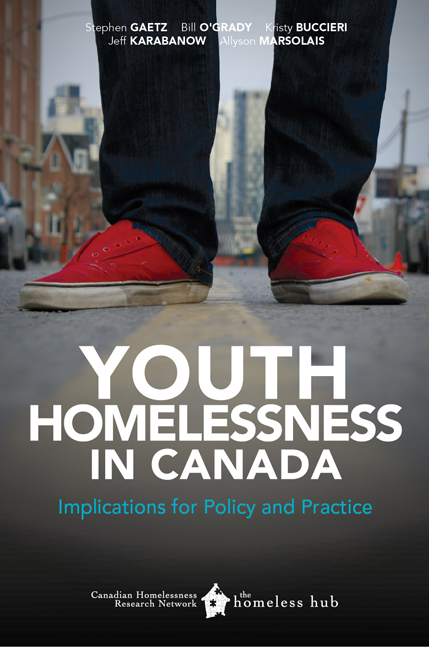Over the years, it has become increasingly clear to me that we need to take a different approach to youth homelessness. While many communities struggle with the problem (and it is important to note that homeless youth come from every kind of community), we continue, for the most part, to rely on emergency services, such as shelters and day programs, to meet their needs. In many communities, we also rely on law enforcement, driven by the misguided belief that by virtue of being young and homeless, these youth must also be delinquent.
It is unacceptable for us to continue down this road. We need to think more strategically about the problem, and shift from a narrow emphasis on emergency service provision (which does have an important role to play) to a model that also incorporates effective prevention strategies and housing and support options. In doing this, we need to design strategies and interventions that are tailored to the needs of adolescents and young adults.
 Youth homelessness is different from adult homelessness in many important ways. Firstly, homeless youth rarely have independent living experience, as they typically leave situations in which they were dependent upon parents and caregivers. Finding an apartment, dealing with landlords, paying bills, etc., then, are things they will likely have never done before. Independent living therefore becomes a big challenge.
Youth homelessness is different from adult homelessness in many important ways. Firstly, homeless youth rarely have independent living experience, as they typically leave situations in which they were dependent upon parents and caregivers. Finding an apartment, dealing with landlords, paying bills, etc., then, are things they will likely have never done before. Independent living therefore becomes a big challenge.
The second distinction – and one that really matters - is that young people who become homeless are in the throes of many important developmental tasks (some physical, cognitive and/or social). In contemporary society, the process of growing into adulthood is something that takes time. Taking on new responsibilities, learning to have adult relationships, developing skills and confidence, taking risks – the tasks of growing into adulthood - are for many part of a slow and arduous process that takes many years and includes trial and error, as well as successes. Changes to our economy also mean that many young people continue to live at home for longer periods in order to obtain more education. In any event, it has become harder and harder to afford housing when the only work one can get is part-time and pays minimum wage.
When young people become homeless, they experience what I like to call ‘adolescence interrupted’. That is, the time granted to move into adulthood is dramatically shortened. The irony being that these young people may need extra time because of potential trauma suffered while growing up. For young people, their experience of homelessness is very different from that experienced by adults. For this reason, we cannot simply take our response to adult homelessness and create a ‘homelessness junior’ system of shelters and day programs. We need to think differently.
So, what role can research play in addressing this important issue? The role of research is essential to identifying the underlying features of the problem, assessing the effectiveness of interventions, and pointing the way towards conceptual shifts that are necessary in the identification of effective solutions. The recently released book, Youth Homelessness in Canada: Implications for Policy and Practice does just this. The book aims to fill a gap in the information available on this important issue by providing an easily accessible collection of the best Canadian research and policy analysis in the field.
If we are going to solve youth homelessness in a meaningful way, we need solutions that are informed by the best research. This book has been written with this in mind. In this volume, leading scholars present key findings from their research on youth homelessness. In an effort to make this research accessible and relevant, contributing authors have been asked to address the ‘so whatness’ of their research; to make clear the policy and practice implications of their research so as to better inform the efforts of those working to address youth homelessness.
One final point: the ePub and PDF versions of this book are available for free from the Homeless Hub! We do this because we are committed to the development of more effective solutions to youth homelessness and getting the best information out to the widest audience. Not only can we do things differently, we must do things differently. And research on youth homelessness can help make a difference.

